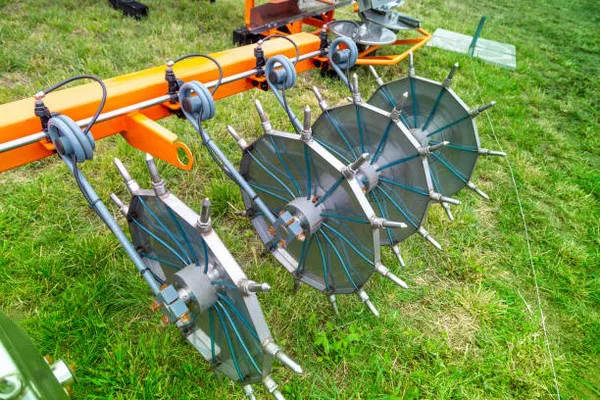In regions with hot climates or during summer months, air conditioning becomes indispensable for maintaining comfort indoors. However, in situations where power outages are frequent or in off-grid locations, running an air conditioner solely on electricity from the grid might not be feasible. This is where generators come into play, providing an alternative power source. But how do you determine what size generator is needed to run a small air conditioner efficiently? In this article, we’ll explore this question in detail, considering factors such as the air conditioner’s power requirements, generator capacity, and other essential considerations.
Understanding Air Conditioner Power Requirements
Before delving into generator sizing, it’s crucial to understand the power requirements of the small air conditioner you intend to run. Air conditioners are typically rated in British Thermal Units (BTUs) per hour, which indicates their cooling capacity. The power consumption of an air conditioner depends not only on its BTU rating but also on factors such as its energy efficiency, operating mode (cooling, heating, or fan-only), and the size of the space it’s intended to cool.
Determining Wattage Requirement: To convert BTUs into watts (which is the unit used to measure electrical power), you can use the following formula:
Watts=BTUs×0.293
This formula provides an estimate of the power consumption in watts. For example, a 10,000 BTU air conditioner would require approximately 2930 watts to operate under ideal conditions.
Factors Affecting Generator Sizing
Once you have determined the power requirements of your air conditioner, you can proceed to select an appropriately sized generator. However, several factors should be considered during this process to ensure optimal performance and compatibility.
1. Starting (Surge) Power: When an air conditioner starts up, it requires a surge of power to kick-start the compressor. This initial surge, known as starting or surge power, can be significantly higher than the running power of the appliance. Therefore, the generator you choose must be able to handle this surge without overloading.
2. Running (Continuous) Power: After the initial startup, the power consumption of the air conditioner stabilizes at a lower level, known as the running or continuous power. The generator’s rated capacity should exceed this value to ensure stable and efficient operation.
3. Generator Type and Efficiency: Different types of generators (such as inverter generators, conventional generators, or standby generators) have varying levels of efficiency and performance characteristics. Inverter generators, for instance, are known for their stable power output and fuel efficiency, making them suitable for powering sensitive electronic devices like air conditioners.
4. Environmental Conditions: Factors such as altitude, temperature, and humidity can affect the performance of both the generator and the air conditioner. It’s essential to account for these variables when sizing the generator to ensure reliable operation under all conditions.
Sizing the Generator
Now that we understand the factors influencing generator sizing let’s delve into the process of selecting the right size generator for running a small air conditioner.
1. Determine Surge Power Requirement: Start by identifying the surge power requirement of your air conditioner. This information is typically provided in the appliance’s specifications or user manual. If the surge power is not explicitly stated, you can estimate it to be approximately 1.5 to 2 times the running power.
2. Calculate Total Wattage: Add the surge power requirement to the running power of the air conditioner to obtain the total wattage needed to operate the appliance. For example, if your air conditioner has a running power of 2500 watts and a surge power of 4000 watts, the total wattage requirement would be 6500 watts (2500 + 4000).
3. Select Generator Size: Choose a generator with a rated capacity that exceeds the total wattage requirement calculated in the previous step. It’s advisable to opt for a generator with a capacity at least 20% higher than the calculated wattage to accommodate any fluctuations in power demand and ensure optimal performance.
FAQs:
1. Can I run my small air conditioner on a generator with a lower capacity?
While it’s technically possible to run an air conditioner on a generator with a lower capacity, doing so can result in several issues. The generator may struggle to handle the startup surge, leading to frequent overloads and potential damage to both the generator and the air conditioner. Additionally, running the generator near its maximum capacity for extended periods can reduce its lifespan and efficiency. Therefore, it’s advisable to choose a generator with a capacity that exceeds the air conditioner’s power requirements.
2. Can I use a portable generator to power my air conditioner during a power outage?
Yes, portable generators are commonly used to power appliances such as air conditioners during power outages. However, it’s essential to ensure that the generator has adequate capacity to handle the power requirements of the air conditioner, including the startup surge. Additionally, proper safety precautions should be followed when operating a generator, such as placing it outdoors in a well-ventilated area to prevent carbon monoxide buildup.
3. Are there any special considerations for running an air conditioner on a generator?
When running an air conditioner on a generator, it’s essential to follow a few best practices to ensure safe and efficient operation:
Use a generator with sufficient capacity to handle the startup surge and running power of the air conditioner.
Connect the air conditioner directly to the generator using a heavy-duty extension cord and avoid overloading the generator with additional appliances.
Monitor the generator’s fuel level and refill as needed to prevent interruptions in power supply.
Regularly inspect and maintain both the generator and the air conditioner to ensure optimal performance and longevity.
In conclusion
Selecting the right size generator for running a small air conditioner involves understanding the power requirements of the appliance, considering factors such as startup surge, and choosing a generator with adequate capacity and performance characteristics. By following these guidelines and best practices, you can ensure reliable and efficient operation of your air conditioner, even in situations where grid power is unavailable.

